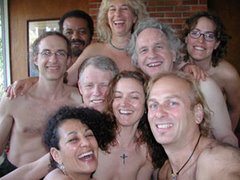Speech Codes for Professors?
Rarely does a day go by when we aren’t assaulted by some story of censorship on a college or university campus or even in general by the left. Just last week the Western Massachusetts Republicans had their Calvin Coolidge Banquet interrupted by a bomb threat.
Where do we draw the line? For those of us that think free speech is an okay thing, even when it means I have to listen to someone whose opinion I may detest, it’s a difficult question to grapple with. When it comes to students being able to voice their opinions on a college or university campus, there is no line and nor should there be. However, what about professors, especially those employed at state universities? Should we maybe institute a litmus test?
an okay thing, even when it means I have to listen to someone whose opinion I may detest, it’s a difficult question to grapple with. When it comes to students being able to voice their opinions on a college or university campus, there is no line and nor should there be. However, what about professors, especially those employed at state universities? Should we maybe institute a litmus test?
Many people in academia these days subscribe to the views of Herbert Marcuse, who would say that it’s okay to censor views that are deemed ‘oppressive’ (see Conservative). For Example, Marcusianists would argue that largely conservative religious views regarding safe sex should be censored because they function as a repressive social mechanism to sexual minorities.
Last October, there was a batch of students at Columbia University who charged the stage of an anti-Illegal Immigration speaker, claiming that he had zero right to speak. Leaders of the group said later on Fox News’s Hannity & Colmes that the speaker was ‘spewing hate’ and that their actions were justified because the speaker’s views were unacceptable.
Depending on the circumstances, censorship can either be a heckler’s veto (like it was in the case I just mentioned) and other times it’s through more official channels. Despite their rhetoric, College and University campuses are becoming notorious for their speech codes. Prohibited speech is really anything that supposedly make someone, especially minorities, fell uncomfortable. There are even some campuses where certain jokes are banned!
Marcusian regulations would say these speech codes are a-okay and even in most cases beneficial because they allow minorities the freedom to express their views instead. Full-fledged free speech cannot exist they claim, because oppressive views might be instilled in minorities and they will, as a result, be intimidated to the degree that they will fall silent. Most levelheaded, common sense people see the problem with these views and they rarely hold up in court.
But really, what about professors? Students don't just naturally behave this way. They have to learn it from somewhere and many times today, their world views are spoon fed to them by a decidedly liberal academic elite.
The University campus should be an entirely open marketplace of ideas and debate. Some of my best friends in college were professed Democrats whom I rarely agreed with anything on, but found ourselves to be quite a dangerous beer pong team. Former State Representative and 2001 Mayoral Candidate Paul Caron was an ardent Democrat. His roommate at Springfield College, few people know, was Craig Shirley, who is one of Washington D.C.’s most pre-eminent power brokers. Shirley’s clients include Ann Coulter, Zell Miller, and just about every major Republican think tank in Washington. He’s an executive board member at the Patrick Henry Center as well as the American Conservatives Union, the same group that puts on the annual conservative Woodstock known as “CPAC”. Imagine what those conversations must have been like?
Competing ideologies amongst students on campus should be welcome. However, there should be some ground rules in place. In the 1950’s, Nobel laureate Friedrich Hayek said that the constitution of liberty that professors who oppose the principles upon which their position rests should forfeit their position. He gave an example of a communist, relevant to the time he was writing, who advocated for the overthrow of the American system and the imprisonment of the enemies of the Proletariat, including his fellow intellectuals. According to him, if such an individual were given power, they would send a majority of their coworkers and the rest of us as well, to the gulag or to the gallows.
Perhaps most importantly, Hayek said that ‘tolerance shouldn’t include the advocacy of intolerance’. A professor’s job depends on the existence of free society and it, under no circumstances can or should advocate for the destruction of that society. The constitution of a free society should not be a suicide pact or the blessings of liberty become the means of its undoing and we’re all worse off in the long run
Understanding Hayek’s argument is important. There is a huge difference between believing that certain change, even radical change, to the status quo is necessary and believing that the freedom one has to speak should be unconditionally denied to all who disagree.
Radical Islam poses a similar threat as communism did decades ago. If in power, its adherents would silence dissent and kill many dissenters. Should professors with this view forfeit their right to tenure, a privilege dependent upon Western ideals of tolerance and free inquiry? This discussion is difficult because it strikes at the heart of many of the ideas we hold dear. We didn't like it when it involved communists and, to our credit, we still don't like it today. But it's a discussion we must have nonetheless.











No comments:
Post a Comment